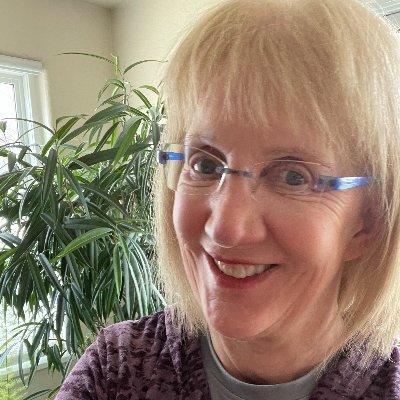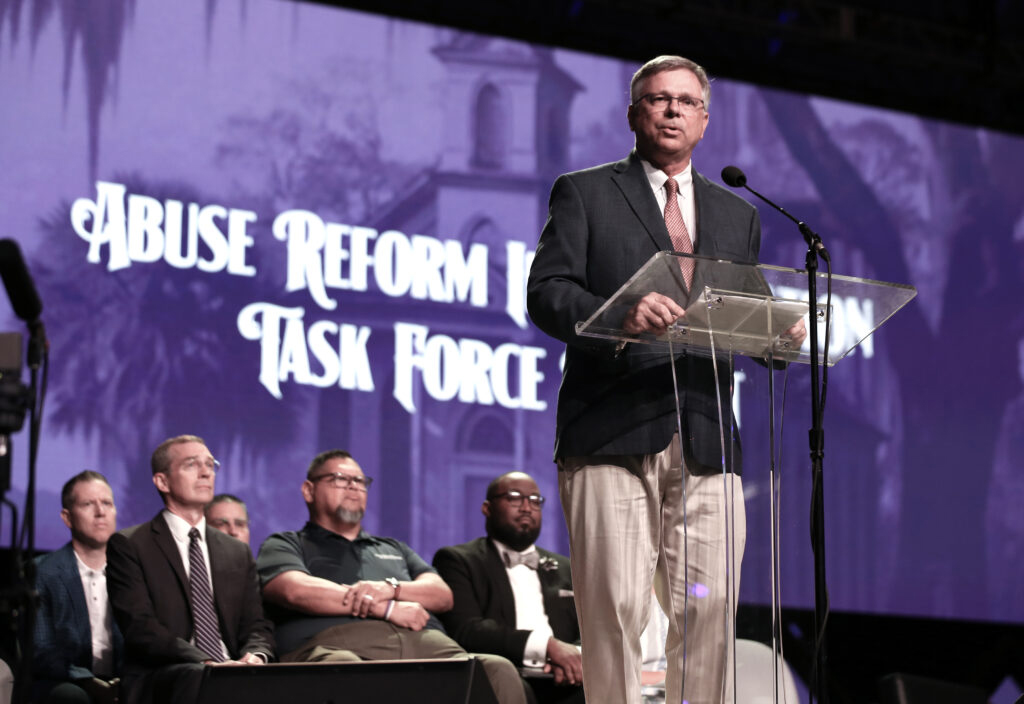When a pace of change is so glacial as to resemble inertia, it means people don’t really care about change.
This is what we are seeing in the Southern Baptist Convention with its reform efforts for addressing clergy sex abuse.

Christa Brown
After stonewalling survivors for decades, the SBC voted in 2022 for the “bare minimum of what can be called reform.” Those aren’t my words. They’re how the chairman of the SBC’s own sexual abuse task force described what the SBC’s messengers voted for at the annual meeting in Anaheim.
A year later, with the SBC’s 2023 annual meeting in New Orleans having just ended, we now see the SBC delivered on not even the “bare minimum” it promised.
Many may have understandably failed to notice this, because a draconian purge of women pastors sucked all the oxygen out of the convention hall this year and caused abuse reform to recede into the background.
“A draconian purge of women pastors sucked all the oxygen out of the convention hall this year and caused abuse reform to recede into the background.”
So, here’s what happened.
In the leadup to the 2023 meeting, the Abuse Reform Implementation Task Force announced that it was preparing to launch the new Ministry Check database of clergy sex abusers. This was part of the “bare minimum” of what had been promised in 2022, as a means for preventing abuse by tracking abusers.
However, although it arrived with much hoopla, what was actually unveiled at the meeting was just a prototype of a database with “dummy names,” as Task Force Chair Marshall Blalock described them in his address to the messengers.
Despite the passage of an entire year, not a single abusive pastor was listed in the database. Not one.
This is not meaningful progress.
The problem never has been how to build a website — you could hire a teenager to do that. The problem has been how to populate that site with the names of credibly accused pastors — something that the SBC has still not done at all.
Furthermore, the SBC’s prototype database is currently set up to eventually list only those who have already “been convicted, confessed or found liable in civil court.” Thus, by design, it will include only the easy and obvious ones.
The task force has stalled out on what it’s calling “category four” names — those pastors who have been determined to be “credibly accused” by an independent investigation.
Even though messengers to the 2022 convention voted overwhelmingly to authorize the inclusion of “category four” names, the task force has now determined this category “requires further study and consideration.”
But “category four” is where the battle always has been.
“The vast majority of clergy sex abusers never encounter the justice system, either criminal or civil, and very few confess to sexual abuse.”
“Category four” is “crucially important,” as the task force itself has acknowledged, because the vast majority of clergy sex abusers never encounter the justice system, either criminal or civil, and very few confess to sexual abuse.
What the SBC always has needed — and still does — is a system for imposing institutional accountability by assessing credible accusations via independent investigation. This is what I and other survivors have been advocating for since 2006. This is what the SBC resists. To say it needs “further study” lands as “still more delay.”
Robert Downen, lead reporter on the Houston Chronicle’s 2019 Abuse of Faith exposé, said that, without “category four” in the database, “really all that does is put the SBC right where they were when we started investigating them six years ago. … It does very little to move the needle.”
I agree with Downen. The SBC has managed to do even less than the “bare minimum” and it has moved the needle very little. To my eyes, this looks like something resembling inertia.
And it’s an unsafe inertia. A prototype won’t protect kids. To prevent abuse, parents and congregants need the names of credibly accused clergy sex abusers.

Marshall Blalock, pastor of First Baptist Church Charleston, S.C., and chairman of the SBC’s Abuse Reform Implementation Task Force, presents the group’s report to messengers June 14 at the 2023 SBC Annual Meeting in New Orleans. (Photo by Sonya Singh)
According to the task force, in just the past year, “hundreds of unique submissions” have been reported to the SBC’s sexual abuse hotline. “Hundreds.”
Who are those reported pastors? Where are they? Have the congregations been fully informed? Have independent investigations been initiated?
And have the reported pastors at least been placed on leave pending investigation?
For the safety of kids and congregants, these should be urgent questions, and yet we don’t know the answers to any of them.
“For the safety of kids and congregants, these should be urgent questions.”
Furthermore, for 15 years, the SBC’s Executive Committee kept a secret list of convicted and credibly accused sexual abusers — a list it made public in May 2022 after the explosive Guidepost report, massive media pressure and survivors’ demands.
The Executive Committee’s list held the names of 409 pastors and church staff members believed to be in churches affiliated with the SBC at some point in time. And the Executive Committee’s legal counsel already reviewed the names to make sure they were substantiated.
So, why hasn’t every single name on that Executive Committee list been automatically transferred to the new database?
With many hundreds of names that should have been added to the Ministry Check database by now, it’s disturbing to instead get a prototype with no names at all.
Week after week, still more SBC clergy sex abuse cases arise. Yet, administration of the database awaits permanent funding and permanent staffing.
An institution whose national entities control $1.1 billion in unrestricted assets should have by now been able to line up permanent funding and staffing for this database. If SBC leaders actually cared about this, it would have happened.
“If SBC leaders actually cared about this, it would have happened.”
Not only does no one know where the funding will come from, no one knows whether the work of the abuse reform task force will even continue beyond another year. That’s all the SBC messengers in New Orleans authorized — one more year. There is still no long-term institutional commitment to abuse reform.
And given that the task force did not step up to even its own “bare minimum” bar, set a year ago, is it really forward “progress” for it to have authorization for another year? Or is it just a wash? A step in place?
Beyond the “bare minimum,” many other steps are needed, including setting up the hotline so a call will trigger an immediate investigation, imposing accountability on the Executive Committee for its documented egregious conduct, and establishing a survivor restitution fund as recommended by Guidepost. From all appearances, these steps are not yet even being talked about.
Change sometimes can happen incrementally, but incrementalism also can be a form of complicity and cruelty. Particularly when combined with hollow assurances of “wait, just wait,” it amounts to more enabling and leaves many survivors crushed in the process.
While we wait for the SBC’s next tiny incremental step, more kids and congregants will be sexually violated by pastors. This is the real-world result of a pace of change that resembles inertia.
Christa Brown, a retired appellate attorney, is the author of This Little Light: Beyond a Baptist Preacher Predator and his Gang and a forthcoming memoir, due out spring 2024, called In Baptistland. Follow her on Twitter @ChristaBrown777.


